
This year marks the thirteenth annual Museums Advocacy Day. It’s a day that I now look forward to every year and can proudly say that Blackbaud has been a part of for nearly a decade. During this collective movement, hundreds of museum advocates come together to give voice to the tremendous value museums contribute to our society and culture.
In addition to serving as community anchors, creating unique education opportunities for people of all ages, and protecting our cultural heritage, museums are a boon to our economy. As shared by AAM’s President and CEO, Laura Lott, at the onset of last year’s Museums Advocacy Day:
- Museums are economic engines that support 726 thousand jobs and generate fifty billion dollars in economic activity and another twelve billion dollars in tax revenue per year.
- Museums have immense public support—95 percent of voters would approve of lawmakers who act to support museums and 96 percent want federal funding for museums to be maintained or increased. Additionally, every week Americans donate one million volunteer hours to the museum field.
- Museums are an educational resource creating real change. Museums spend two billion dollars on educational programming each year, which creates professional development for teachers and learning opportunities for home-schooled students as well as all P-12 students.
- Museums provide powerful and healing healthcare programs that reach diverse populations and support national security and diplomacy efforts through international cultural exchange.
In the year since, that impact and the need to support it have only become clearer. Financial duress from the pandemic has not stopped museums from meeting the needs of their communities, whether providing spaces for remote and virtual classrooms or providing lesson plans, online learning opportunities, and drop-off learning kits to teachers and families.
Last year, we focused on funding efforts related to the Office of Museum Services (OMS) within the Institute of Museum and Library Services (IMLS), as well as tax policy measures that would make it more appealing for people from all socioeconomic backgrounds to donate to charitable organizations, including cultural spaces like museums. We walked away from our time together feeling inspired, energized, and unstoppable in our quest to further the pursuits of museums. AAM empowered us with tools to keep the conversation going through pre-written letters and social media posts.
Skip over related stories to continue reading articleThis year, Museums Advocacy Day is going virtual in response to the ongoing COVID-19 pandemic. We will be having virtual meetings with Congressional offices to discuss COVID-19 economic relief legislation, funding for the Institute of Museum and Library Services’ Office of Museum Services, and tax incentives for charitable giving, among other issues.
Advocacy efforts like Museums Advocacy Day create everlasting impact. And I challenge myself and my fellow advocates to keep the momentum going—Museums Advocacy Day should really serve as the kick-off to a year-round successful advocacy program. Constituents are in the best position to create lasting change. Their direct interactions with lawmakers and staff have a greater influence on legislators than any other group or strategy. Below are key insights for putting an advocacy program in place:
- Focus: Like most museums and other arts and cultural organizations weathering the pandemic, you probably have many areas where you could use advocacy support, but it’s important to focus your efforts around one initiative at a time to help arm your constituents with the necessary resources and create one clear message for advocacy. This year, many are advocating strongly for the inclusion of museums in any additional COVID-19 economic relief legislation.
- Educate: Provide your advocates with all of the facts and information they need to speak knowledgeably about your cause. Prepare them with material that outlines the issues and provide any facts and figures. That will be their strongest tool.
- Empower: Help your advocates make their case for your cause by giving them a sense of what they can expect. Provide them with talking points or even a script, so they can practice what they’re going to say.
- Be Heard: Utilize the power of social media to increase awareness of your cause. Create a social media campaign and draft posts with relevant hashtags that others can easily share across their networks. Create materials, such as one-pagers, that outline your mission, the cause being advocated for, and how others can get involved.
- Show Gratitude: Your supporters are crucial. It’s their passion that will help spread the word about your mission and the causes important to your organization. Make sure they know you appreciate everything they do to help advance your cause, and that they know to share their appreciation (for their time, and support if applicable) with any lawmakers and legislative staff they connect with.
Congress faces an enormous list of policy decisions—especially now, as the COVID-19 pandemic continues—many of which can have significant impact on museums. Ensure your supporters are empowered to advocate on behalf of your organization, so museums can continue to create lasting impact for generations to come.
And finally, it’s important to remember that advocacy is a marathon, not a sprint. The pace of change can be frustratingly slow, but with persistent efforts it will happen. The power of our ongoing, year-round advocacy for museums is in building lasting relationships with lawmakers and stakeholders who can help advance our cause.
I’m looking forward to continuing conversations this year with my fellow returning advocates and hopefully a ton of new faces!


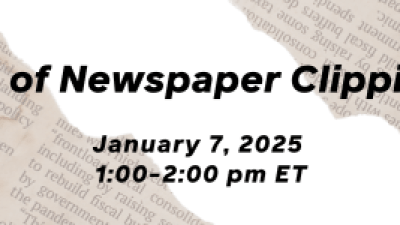
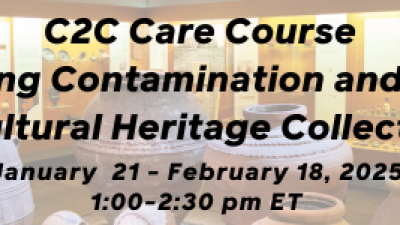
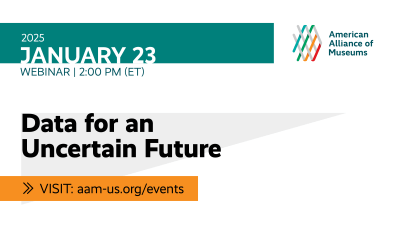


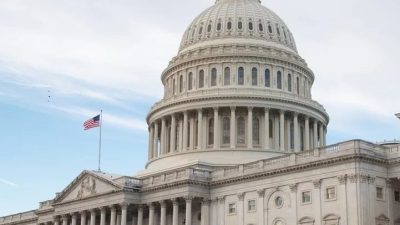
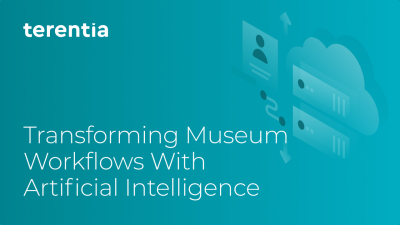
As a recent retired Art Teacher in an urban high school, I applaud the Museum Advocacy efforts and decades of work! What can I do to contribute as a volunteer?
Hi Rene! Thanks for getting involved and adding your voice to support museums. You can contribute today and throughout the year using our Advocate from Anywhere resources. Thanks for your education work and for speaking up for museums!